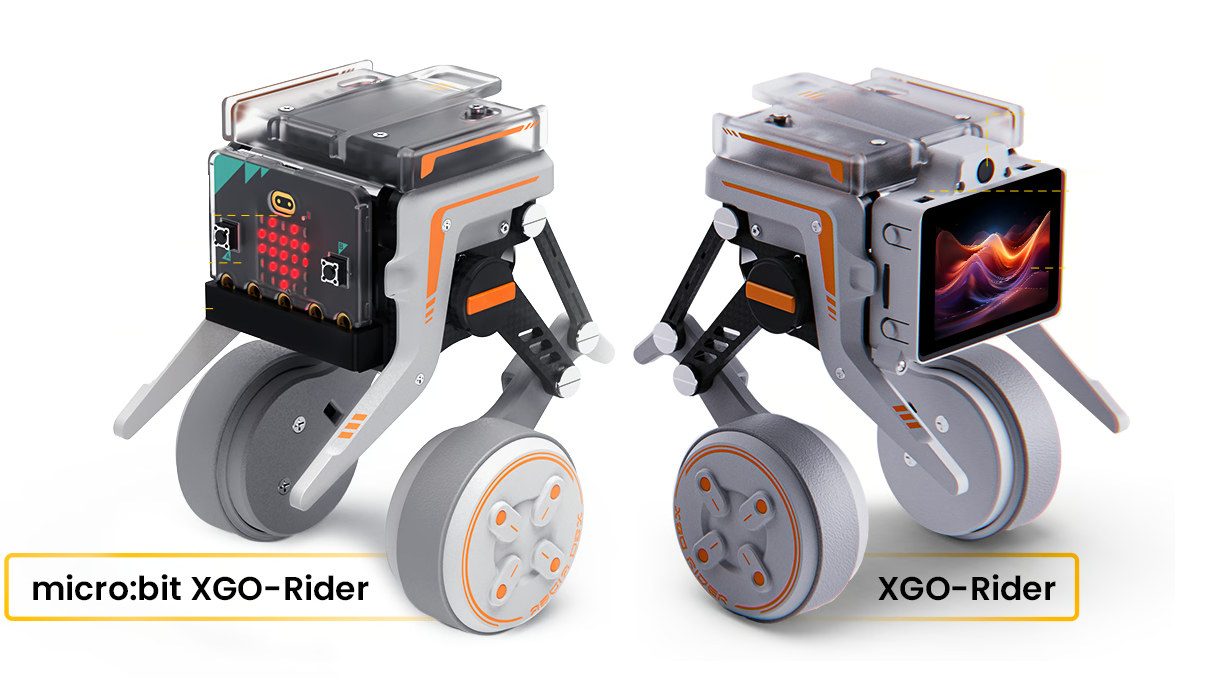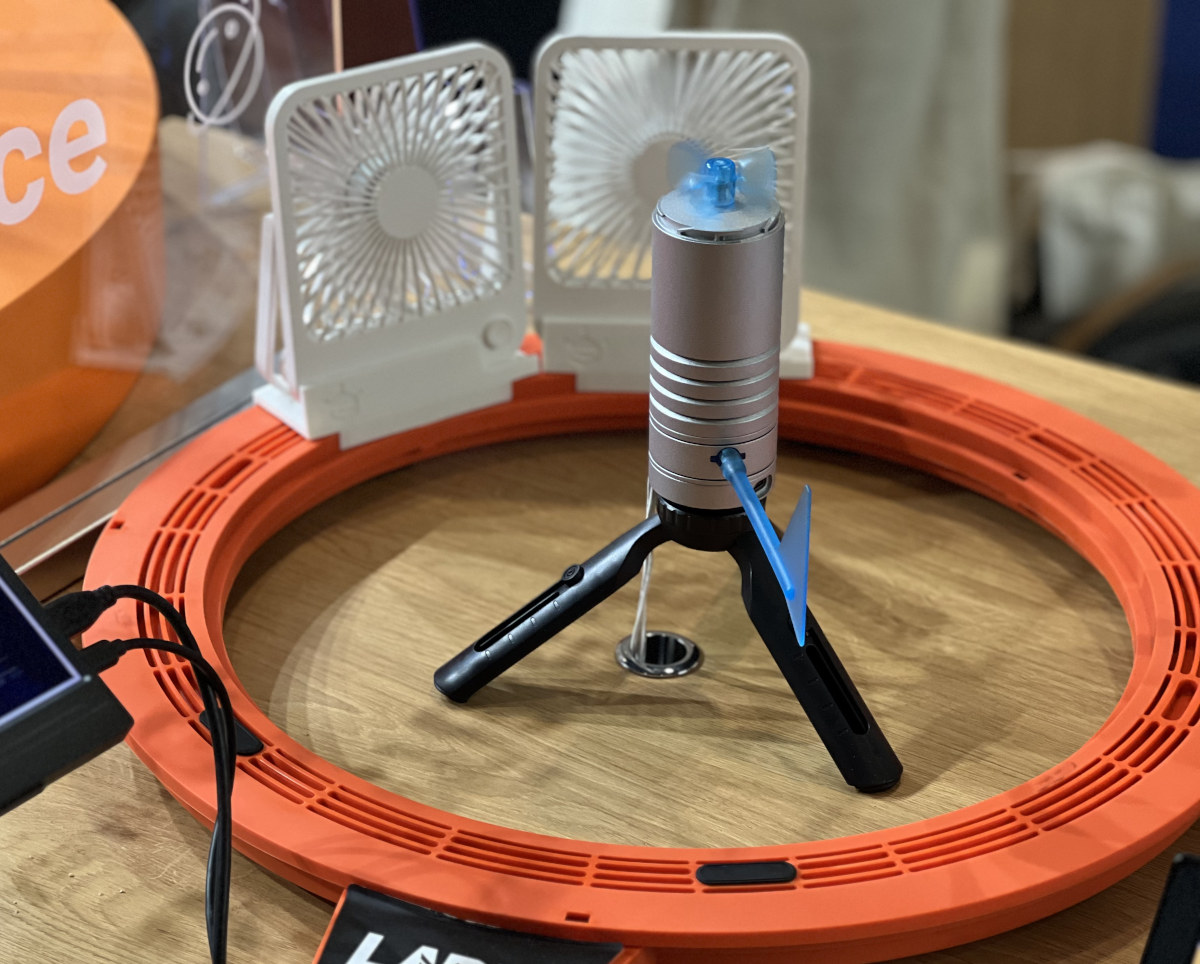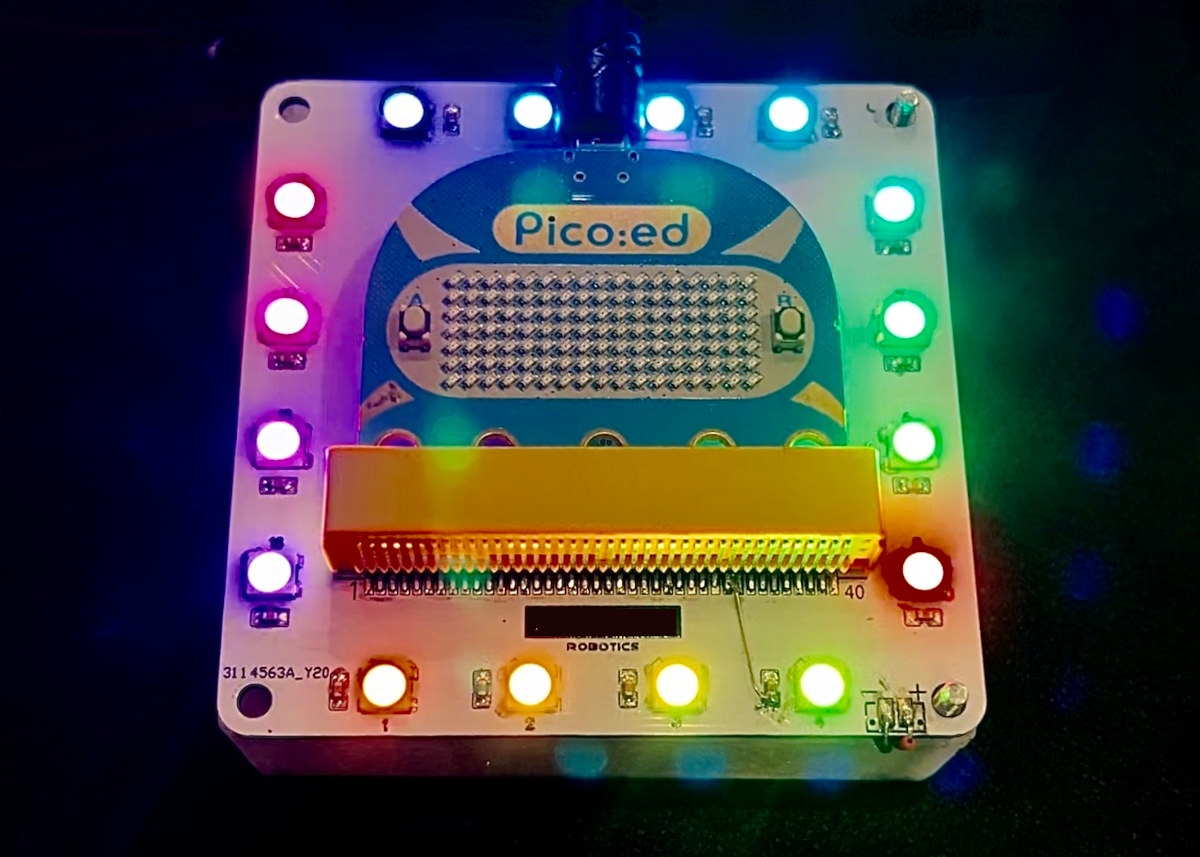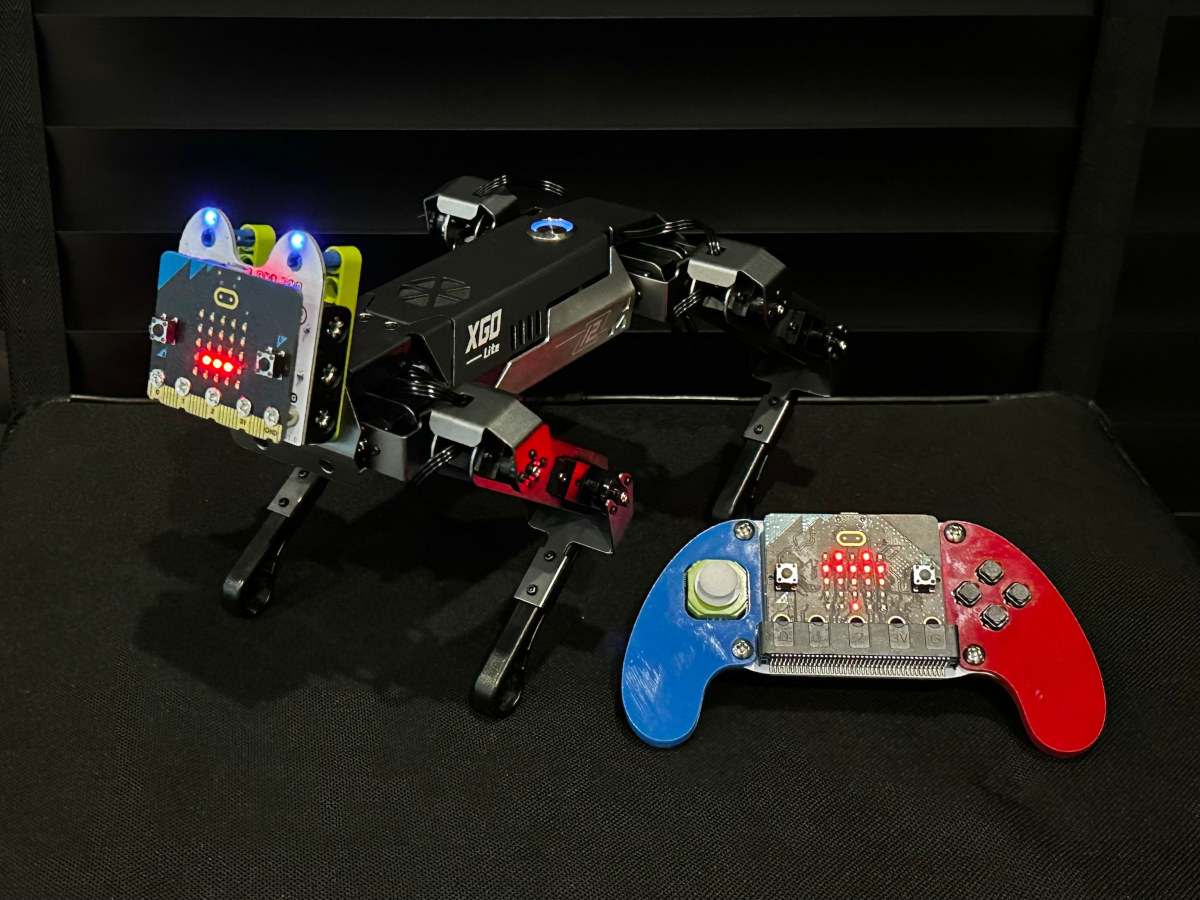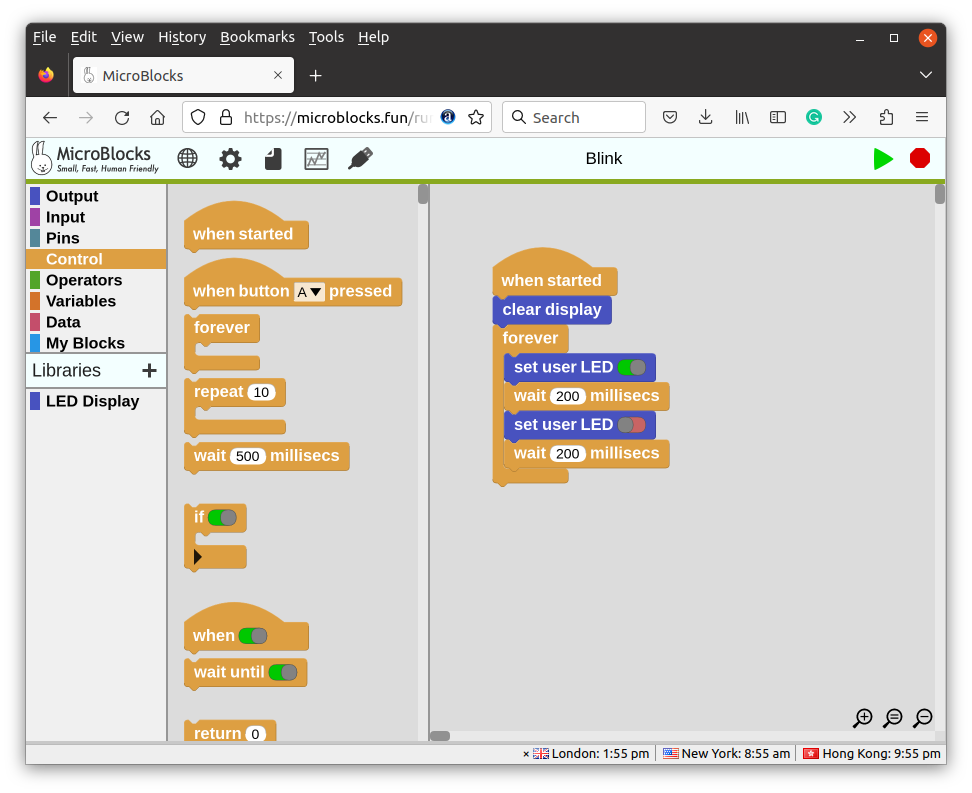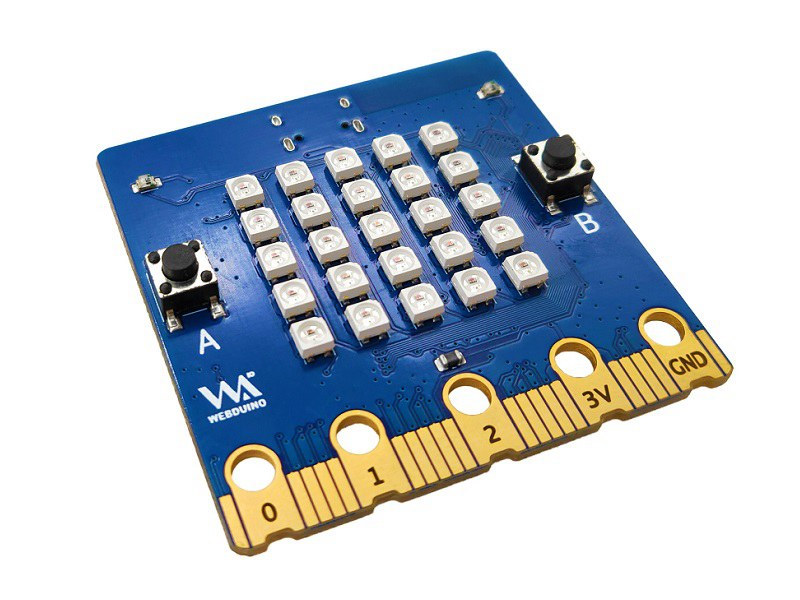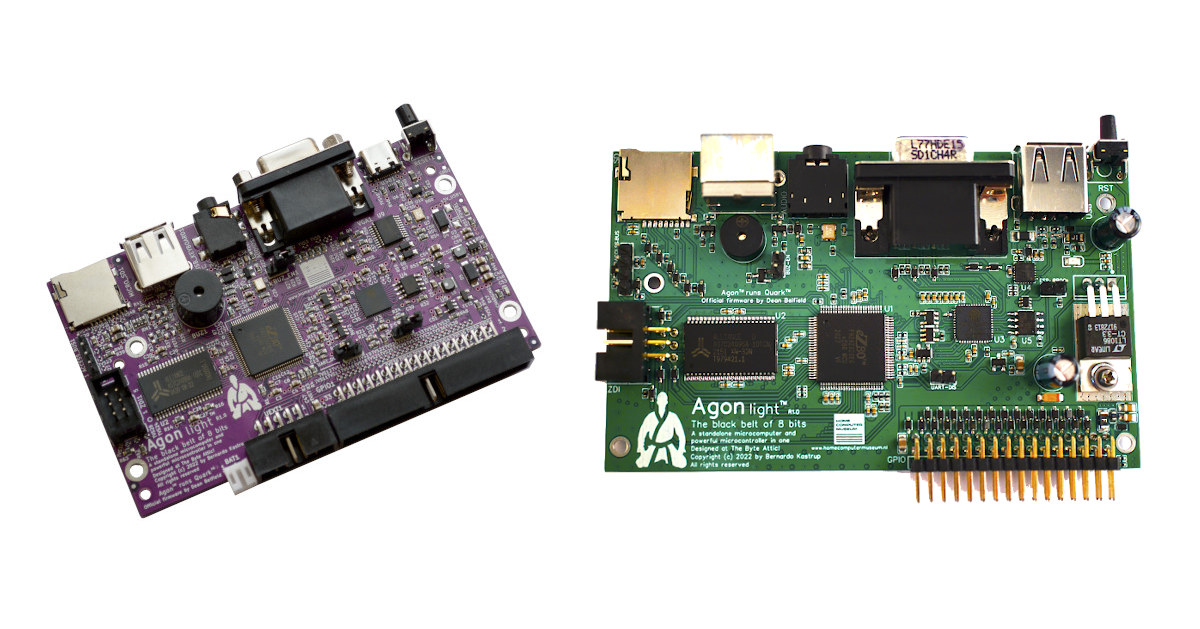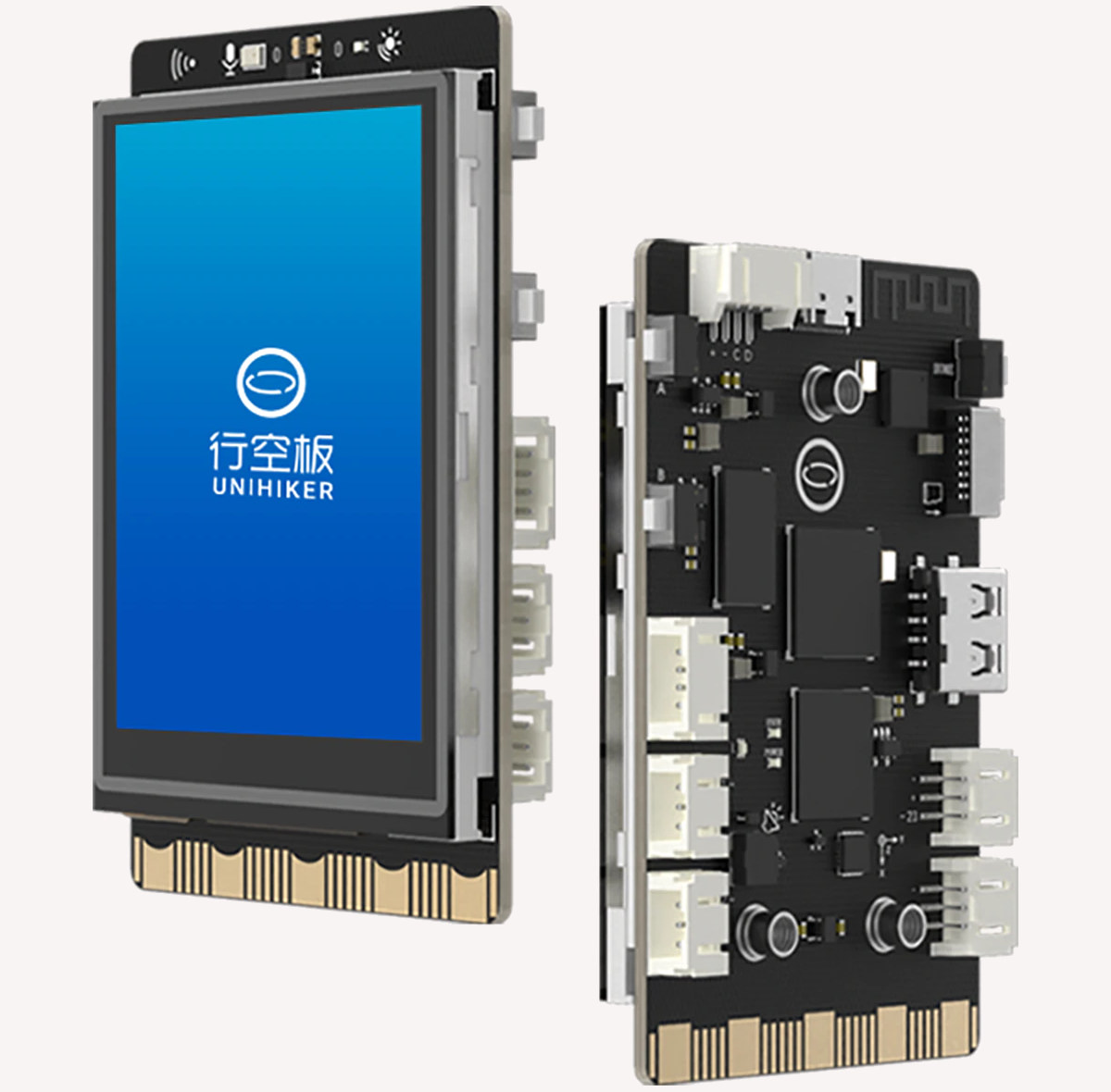XGO-Rider is a two-wheel self-balancing robot with an ESP32 controller for motor and servo control, USB-C charging, etc… and a choice between a Raspberry Pi CM4 module or a BBC Micro:bit board for display, audio, and camera (CM4-only). It’s not the first robot from Luwu Intelligence, since the company launched the XGO-Mini robot dog in 2021, followed by the XGO 2 Raspberry Pi CM4-powered desktop robotic dog with an arm which we reviewed last year. The new XGO-Rider builds on these earlier models but in a different form factor moving from four-legged robots to a 2-wheel self-balancing robot design with many of the same features including AI vision running on the Raspberry Pi CM4. XGO-Rider specifications: Host controller (one or the other) Raspberry Pi CM4 with 2GB RAM + ESP32 for main control, USB-C charging port, DIP switch BBC Micro:bit V2 + ESP32 for main control, USB-C charging port, DIP […]
The Lark Weather Station works with Arduino, ESP32, micro:bit, Raspberry Pi, and other boards
The Lark Weather Station measures wind speed, wind direction, temperature, humidity, and air pressure through a range of sensors and connects to popular development boards such as Arduino UNO, ESP32, BBC micro:bit, Raspberry Pi, or DFRobot Unihiker through I2C or UART. We’ve seen several projects for Internet-connection weather stations that retrieve weather data from the web and display the results locally, but the Lark Weather Station allows the users to get atmospheric data right in his/her current location thanks to its built-in anemometer, wind vane, and built-in sensors, as well as expansion interfaces for additional sensors. Lark Weather Station specifications: Storage – 16MB flash good to store about 160 days of data (when data is recorded once per minute) Sensors Compass Anemometer Wind Speed: 0.5~12m/s Cover to protect the anemometer during storage/transport Wind vane and wind direction shaft to report the wind direction (eight directions) Temperature Range –20~60℃ ±0.2℃ Humidity […]
Using Pico:ed V2 board as a replacement for BBC Micro:bit
We’ve received a sample of the Pico:ed V2 board developed by ELECFREAKS and will show how to use it as a replacement for the BBC micro:bit in a project using CircuitPython. We’ve already covered the board in detail with specifications, block diagram, and pinout diagram before, and it’s basically a Raspberry Pi Pico RP2040 board with BBC Micro:bit form factor including a 17×7 Dot Matrix LED display, some buttons, a buzzer, but no wireless connectivity, relying only on USB instead. CircuitPython firmware installation on the Pico:ed V2 board The board supports C/C++, MicroPython, and CircuitPython programming languages, and for this review, we’ve decided to download the CircuitPython UF2 firmware. Press and hold the BOOTSEL button after having downloaded the firmware file… … and connect the board to your computer using a USB cable before releasing the BOOSEL button on the Pico:ed V2 board, which should then show up as the […]
Review of micro:bit XGO Robot Kit – An educational robot dog with a Bluetooth joystick
ELECFREAKS micro:bit XGO Robot Kit is a robotic dog designed for robotics education. It moves realistically and acts like a real pet dog, and can help teach various technology concepts related to mechanical engineering, electronics, programming, and artificial intelligence (AI). The kit support both the BBC Micro:bit V1 and V2 boards which can be programmed with Microsoft MakeCode, Python, the Arduino IDE, and other languages. The XGO robot is compact and can be easily used on a desk or table. The robot is made of aluminum metal coated with a beautiful anodized finish. Each leg has 12 high-quality digital servos moving each joint, 3 on each side, totaling 12, helping the robot dog to move smoothly and flexibly. The robot can be controlled with apps, a joystick, and up to 19 ready-made postures, such as holding hands, looking for food, sitting down, squatting, etc… Content of the XGO robot kit: […]
MicroBlocks is a visual programming IDE for 32-bit microcontrollers
MicroBlocks is a visual programming IDE for 32-bit microcontrollers currently supporting the BBC Micro:bit V1/V2, Calliope mini (aka the German Micro:bit), Adafruit Circuit Playground Express and Bluefruit, Raspberry Pi Pico and Pico W, and various other boards including ESP32 and ESP8266-based boards. I discovered MicroBlocks in the list of talks for FOSDEM 2023, and although it did not make it to my virtual schedule, I thought it was interesting to look into and write about it. In their upcoming FOSDEM talk, Bernat Romagosa and Kathy Giori refer to MicroBlocks as small, fast, and human-friendly with development guided by four guiding principles: liveness, parallelism, portability, and autonomy. The IDE is inspired by Scratch, and as such, looks very similar to other visual programming interfaces I have used over the years. You can launch MicroBlocks from Google Chrome or Microsoft Edge on a PC (not a mobile device) without having to install […]
Banana BPI-Bit-S2 BBC Micro:bit compatible board supports WiFi
Banana BPI-Bit-S2 is a board for the education market that’s compatible with the BBC Micro:bit V2, but offers WiFi connectivity instead of Bluetooth LE through an Espressif Systems ESP32-S2 wireless microcontroller. The BPI-Bit-S2 succeeds the earlier Banana Pi BPI-Bit with ESP32 WiFi & BLE microcontroller that was a closer match to the original BBC Micro:bit than the new ESP32-S2 board for which I see little benefit, except for the slightly lower price tag. Banana BPI-Bit-S2 specifications: Wireless MCU – Espressif Systems ESP32-S2FN4R2 single core LX7 microcontroller with 320 kB SRAM, 2MB PSRAM, 4MB flash, 2.4 GHz WiFi connectivity LEDs – 25x RGB LED matrix USB – 1x USB Type-C port for power and programming Sensors – 2x light sensors, 1x thermistor sensor Expansion – 3x I/O rings, 3V/GND rings, 20-pin edge connector (compatible with BBC Micro:bit V2 design) with up to 16x GPIO, I2C, SPI, 3.3V, and GND Misc – […]
Olimex AgonLight2 8-bit open-source hardware computer sells for 50 Euros
Olimex has started to take pre-orders for the AgonLight2, a customized version of the Agon Light 8-bit open-source hardware computer based on the Z80 family and running BBC Basic. Bernardo Kastrup and Dean Belfield created the Agon light 8-bit retro computer with VGA and PS2 keyboard port and programmable with BASIC earlier this year and released all hardware design files, the firmware, and documentation on GitHub, and Dean uploaded a one-hour-long video on YouTube. It was designed with EasyEDA, but Olimex re-captured the design in KiCad after getting customer requests, and the new cost-optimized board named AgonLight2 will start shipping by the end of January 2023. AgonLight2 specifications: MCU – Zilog eZ80F92 8-bit microcontroller @ 18.423 MHz with 128 KB flash, 256 bytes configuration Flash memory, 8 KB SRAM (See PDF datasheet for details) System Memory – 512KB, 10ns, parallel SRAM Storage – MicroSD card socket Terminal subsystem MCU – […]
UniHiker education platform teaches STEM with Mind+ and Jupyter
DFRobot UniHiker is a STEM education platform with a 2.8-inch touchscreen display, a Rockchip RK3308 quad-core Cortex-A35 processor, a GD32V RISC-V microcontroller, WiFi and Bluetooth connectivity, as well as various headers for expansion, and a BBC Micro:bit compatible edge connector. The UniHiker runs Debian 10 Linux and can be used to teach programming using Mind+ visual programming IDE or Jupyter open-source interface, as well as IoT and AI basics thanks to tutorials and lessons available in Chinese only as the platform clearly targets the education market in mainland China at this point in time. Unihiker specifications: SoC – Rockchip RK3308 Quad-core Arm Cortex-A35 processor @ 1.2GHz without GPU MCU – Gigadevice GD32VF103C8T6 RISC-V microcontroller @ 108MHz with 64KB flash, 32KB SRAM System Memory – 512MB DDR3 Storage – 16GB eMMC flash, MicroSD card socket Display – 2.8-inch touchscreen color display with 320×240 resolution Connectivity – 2.4 GHz Wi-Fi & […]


